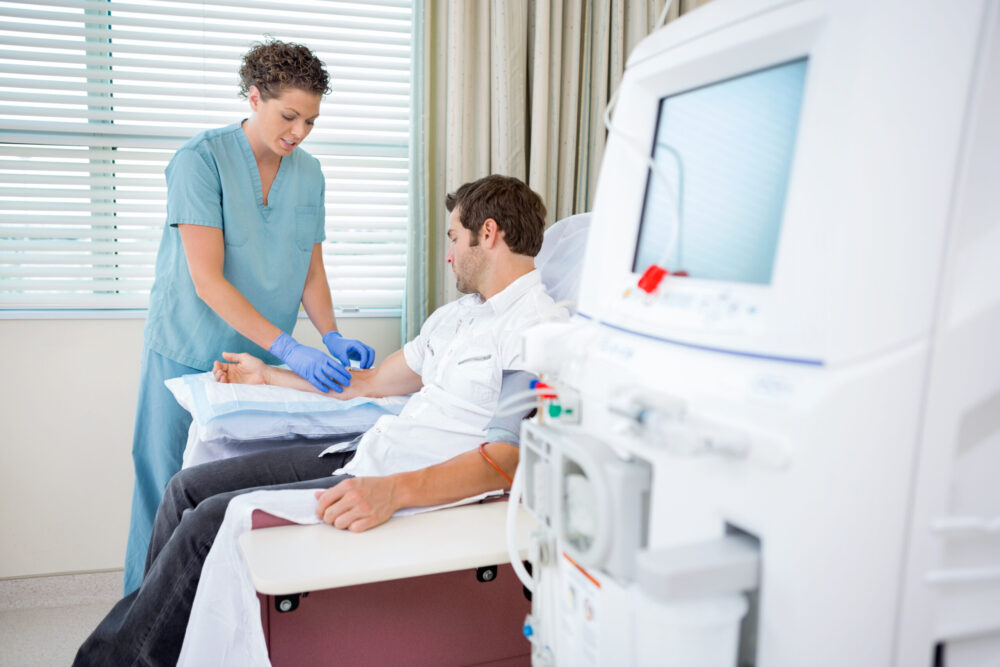DIALYSIS IN RICHMOND, VIRGINIA
Helping To Improve Kidney Function
Properly functioning kidneys prevent extra water, waste, and other impurities from accumulating in your body. They also help control blood pressure and regulate the levels of chemical elements in the blood. These elements may include sodium and potassium. Your kidneys even activate a form of vitamin D that improves the absorption of calcium.
Our kidney specialists at Richmond Nephrology Associates provide many locations and options for dialysis.
What Is Dialysis?
The kidneys filter your blood by removing waste and excess fluid from your body. This waste is sent to the bladder to be eliminated when you urinate. When your kidneys can’t perform these functions due to disease or injury, dialysis can help keep the body running as normally as possible by filtering and purifying the blood using a machine. This helps keep your fluids and electrolytes in balance when the kidneys can’t do their job. However, it isn’t a cure for kidney disease or other problems affecting the kidneys. Different treatments may be needed to address those concerns.
If you are looking for a better way to manage your kidney disease and your treatment, contact our kidney specialists at Richmond Nephrology Associates.
Types Of Dialysis
Are there any alternatives to dialysis?
Dialysis is time-consuming and expensive. Not everyone chooses it, particularly if they’re experiencing severe, acute kidney failure.
There are other treatment options that may help manage your symptoms.
If you decide not to pursue dialysis or need a second opinion, contact our kidney specialists at Richmond Nephrology Associates to discuss other options.



